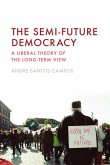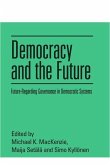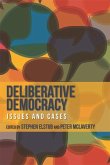"Democracy and Political Violence" applies democratic theory to the problem of creating a liberal democracy in a situation of conflict, violence, and social division. It adopts a distinct perspective: that both community and conflict are at the heart of all but the smallest of democratic societies, and that they need to be reconciled in order for democracy to be successful. The text focuses on national and ethnic conflict, the challenges of terrorism, the problems of cultural division, attempts at creating democracy by imposition, and the question of establishing a common culture of citizenship spanning ethnic and cultural divisions.
AUTHOR APPROVED An analysis of the phenomenon of political violence and its implications for democratic politics. The use of violence as a political weapon poses problems for democratic ideals and for the workings of democratic societies in practice. Democratic societies aspire to solve political conflict through non-violent means, yet the events of 11 September 2001 and other terrorist actions show that political movements world-wide resort to violence as a means of political action. In turn contemporary politics has witnessed the 'war on terror' and the use of state violence to secure the safety of citizens. This book examines the challenge which violence represents both to established democracies as well as to societies seeking to move towards democracy. It uses current examples, such as East Timor, Kenya, Chechnya, and cases of nationalist violence in Europe, to illustrate these issues. It argues for the realisation of an ideal of inclusive democratic community as the way in which the challenge of political violence could be met. Key Features *Applies democratic theory to issues of great topical importance such as terrorism and state violence *Combines theoretical arguments with case studies and 'real world' empirical examples from East Timor, Kenya, Chechnya, Afghanistan, Iraq and France *Presents a broad overview of the crucial issues facing liberal democracies in contemporary politics *Advances the debate with proposals for the future conduct of liberal-democratic politics to meet new violent challenges John Schwarzmantel is Senior Lecturer in Politics and Director of the Centre for Democratisation Studies at the University of Leeds. His most recent publications include Ideology and Politics (Sage 2008) and (jointly edited with Mark McNally) Gramsci and Global Politics, Hegemony and Resistance (Routledge 2009).
Hinweis: Dieser Artikel kann nur an eine deutsche Lieferadresse ausgeliefert werden.
AUTHOR APPROVED An analysis of the phenomenon of political violence and its implications for democratic politics. The use of violence as a political weapon poses problems for democratic ideals and for the workings of democratic societies in practice. Democratic societies aspire to solve political conflict through non-violent means, yet the events of 11 September 2001 and other terrorist actions show that political movements world-wide resort to violence as a means of political action. In turn contemporary politics has witnessed the 'war on terror' and the use of state violence to secure the safety of citizens. This book examines the challenge which violence represents both to established democracies as well as to societies seeking to move towards democracy. It uses current examples, such as East Timor, Kenya, Chechnya, and cases of nationalist violence in Europe, to illustrate these issues. It argues for the realisation of an ideal of inclusive democratic community as the way in which the challenge of political violence could be met. Key Features *Applies democratic theory to issues of great topical importance such as terrorism and state violence *Combines theoretical arguments with case studies and 'real world' empirical examples from East Timor, Kenya, Chechnya, Afghanistan, Iraq and France *Presents a broad overview of the crucial issues facing liberal democracies in contemporary politics *Advances the debate with proposals for the future conduct of liberal-democratic politics to meet new violent challenges John Schwarzmantel is Senior Lecturer in Politics and Director of the Centre for Democratisation Studies at the University of Leeds. His most recent publications include Ideology and Politics (Sage 2008) and (jointly edited with Mark McNally) Gramsci and Global Politics, Hegemony and Resistance (Routledge 2009).
Hinweis: Dieser Artikel kann nur an eine deutsche Lieferadresse ausgeliefert werden.








